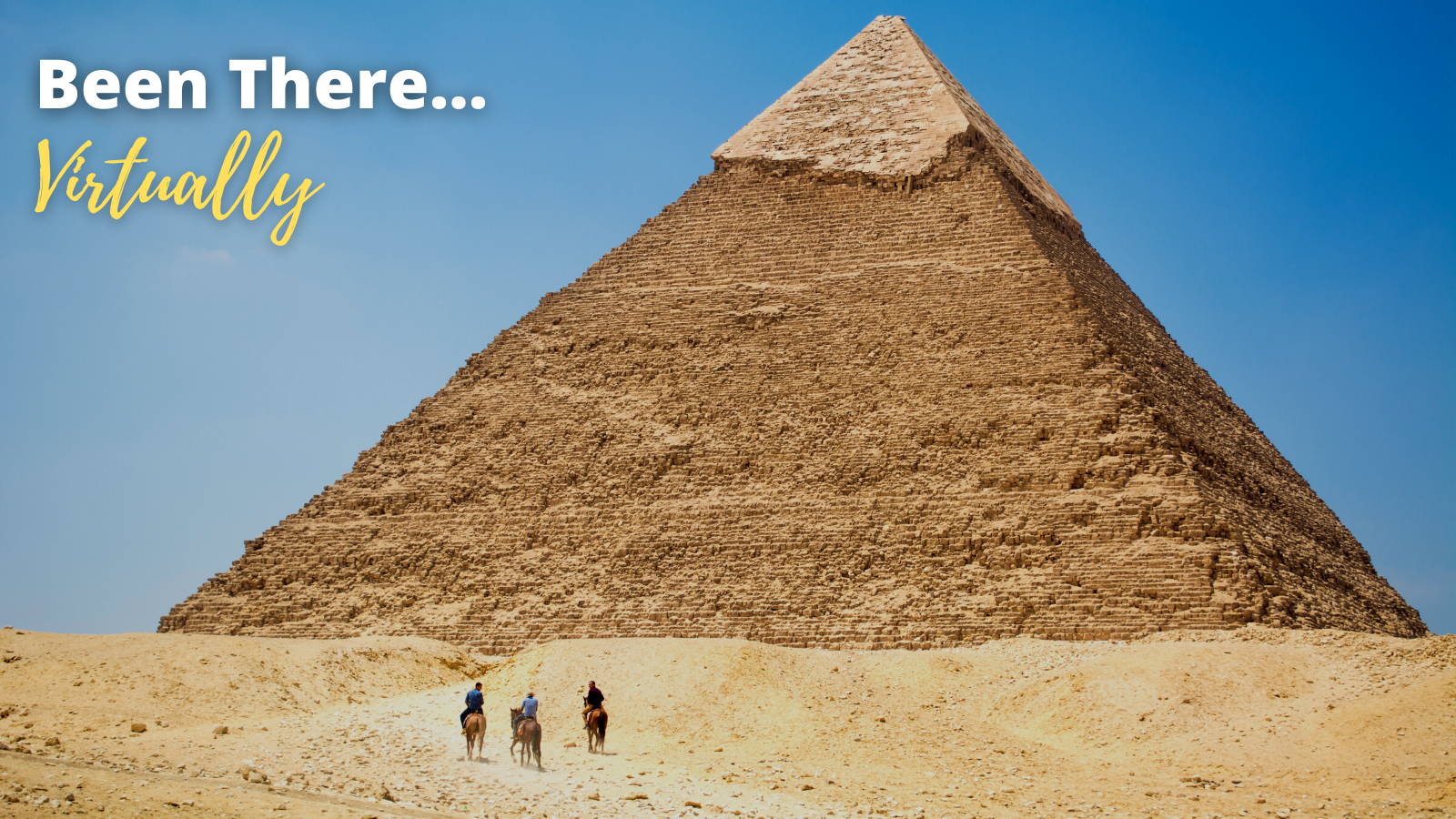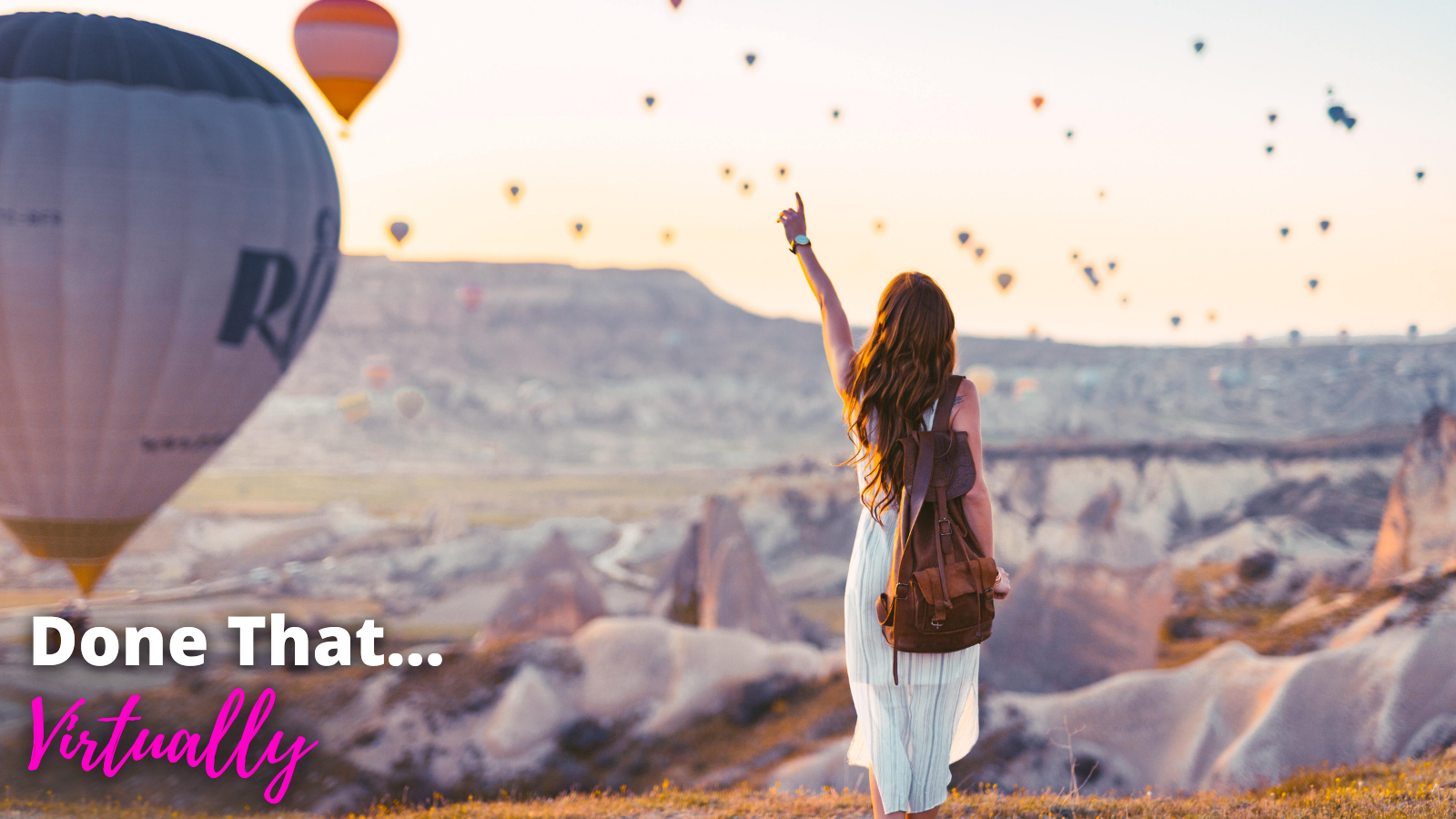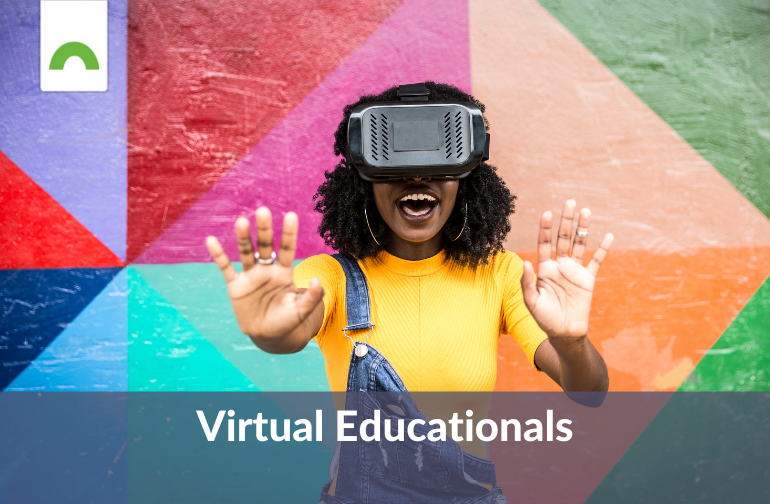Nobody knows when we’ll be able to return to in-person educationals and familiarisation trips that help travel professionals develop their expertise.
Back when I worked as a tour operator, I went on an educational at a Big 5 game reserve in South Africa. The ranger assigned to me couldn’t believe that I’d sold their safari experience without ever having been there before. How did I know what I was selling? Fun freebies aside, it has to be said there’s no better way to sell an experience than to have it yourself. Hotel visits and guided trips with destination marketers were more than just free trips – they were opportunities to grow knowledge and form relationships.
That was then. Now, we’ve got a new normal to navigate.
 What’s the point of an educational?
What’s the point of an educational?
A first-hand sampling of on-site facilities, service levels, small value-added touches that don’t always make it onto a brochure, all provide an up-close and personal view of the nuts and bolts that can guide a consultant’s choice of one product over another for the way it addresses their clients’ needs.
It’s an opportunity for product suppliers and destination marketers to educate members of the travel trade about the experiences on offer. Travel consultants are able to truly immerse themselves and put themselves in their clients’ shoes. In the COVID-19 era, with travel brands considering ways to pivot their business – looking at new products in their local area or new markets to target – it’s now even more important to gain an insider view of what’s available, how best to sell it, and to explore new partnerships.
Tour Operators, DMCs and Travel Agents need educationals to:
- scout new locations and experiences to feature in tour itineraries
- sample new or preferred supplier products before they market or promote them
- develop their product and destination knowledge to expert levels
Hospitality and Accommodation suppliers need educationals to:
- spread the word to trade partners that they’re ready to welcome back travellers
- feature new additions to their offering and how they plan to service future guests
- inform of safety precautions they’ve taken, and how that changes the experience
These days we’re connecting, networking, collaborating and selling online, and COVID-19 has likewise nudged this industry tradition online. So, how are you set up for the virtual educational experience?
 Up close and virtual
Up close and virtual
Key among familiarisation (fam/famil) trips, educationals and site inspections, is the fact that the experiences are immersive, interactive, emotive and stimulating, and ultimately, subjective. If it can’t be done in person, how do you replicate that experience? We can think of two online options that are almost as good as in-person experiences.
- Live streaming events
- Virtual reality content
Traditional educationals invariably incurred some cost to both host and visitor. There were limits to how many free or discounted bed nights a hotel might be able to offer, just as the number of educationals travel professionals could participate in, or locations they could visit, were limited. Also, senior consultants usually got the first option on an educational – they would then share information with their intermediate and junior counterparts back at the office.
Both online strategies offer access to bigger audiences at no greater cost. Both incorporate sights and sounds into emotive imagery, along with informative text.
Live streamed educationals
One way of bypassing the disconnect between trade partners, is for product suppliers to host online demonstrations or events via social media. All you need is a Facebook, Instagram or YouTube account to host or attend live stream events for free.
Restaurant marketers: conduct live cookery demos and walk-throughs of your premises, linger over entertainment acts, and allow viewers to observe your staff in action. Activity owners: provide an intimate, subjective view by going through your experience with a GoPro camera in hand. Find inspiration in ‘live’ tours, like the 2-hour live stream tour of their country recently held by the Swiss Tourism Board. You can include a presentation or seminar, and invite your trade partners to book tickets to participate at a scheduled time. Facebook Events are fully interactive, enabling question and answer sessions in real time.
Virtual Reality tours
The technology has been around long enough to be a plausible solution. Virtual Reality (VR) has the ability to free us and our clients from prevailing travel restrictions. Destinations, accommodations and hospitality marketers can create immersive virtual tours for consumption via VR-enabled headsets or apps. Once that content exists and it’s appropriate, a travel agent could even share it with their client to help make the sale.
VR tech is more accessible than you might think. Marketing staples for our industry, like YouTube and Facebook are compatible with 360° content. TravelWorld, Google Street View (for properties) and Google Earth Virtual Reality (for destinations) are just some tools that come to mind, that produce 360° images and videos, as well as Augmented Reality content, for the travel industry.
Tours can feature panoramic views, voice-over guides with text and some also feature interactive experiences with varying degrees of movement enabled. Viewers can be taken through check-in processes, with snapshots and soundbites of different service delivery scenarios. They can focus on whatever aspect of an experience is important to them, while content creators simply point a camera into every nook and cranny to make viewers feel they are there, doing that, in the flesh.
AR & VR headset sales are expected to grow to $9.7 billion in 2021
How’s that for an exciting statistic to bring virtual educationals back from the future straight to housebound travel consultants at warp speed! The trend promises many will be able to follow VR stories in cinematic style with devices such as Oculus, Vive, Samsung Gear VR, or household gaming consoles like Sony PlayStation, Microsoft Xbox Series X, and Nintendo Labo with VR-enabled headsets.
If you have none of these lying around the house or office, the humble smartphone can also play along. Google Street View (for Android and iOS) enables hosts to build their own 360° story with Street View ready products. Viewers can download The Cardboard app to enjoy VR experiences. So you have options to bring immersive experiences to your phone or laptop, where you can toggle in different directions for a mostly unimpeded virtual view.
 Make the best of your virtual educational
Make the best of your virtual educational
A virtual educational can be custom-designed for its intended purpose or audience. Whether you manage or market a resort or a restaurant, run tours or activities, any alternative trying-before-buying experience is a good investment.
Accommodation, restaurant and activity suppliers can create unique content for select groups, showcasing the product in a way that addresses their particular interests. To make up for the senses that don’t translate virtually, goodie bags with free gifts or tasting samples can be couriered to those groups to complement an educational live stream event or VR video.
Where VR tours or images have been uploaded to iBrochures, travel consultants can view them any time, wherever they are. As Wetu users, they can request new content privately, receive it directly via WetuShare, then also tag and store it for later viewing.
 Virtual educationals are not only easier to host and participate in than you imagined, but are also a powerful way to connect and build trade relationships. Ultimately, it’s a worthwhile time and content investment when the right experience is matched to the right clients. Go ahead, beam yourself up!
Virtual educationals are not only easier to host and participate in than you imagined, but are also a powerful way to connect and build trade relationships. Ultimately, it’s a worthwhile time and content investment when the right experience is matched to the right clients. Go ahead, beam yourself up!


Would you like to share your thoughts?
Your email address will not be published. Required fields are marked *